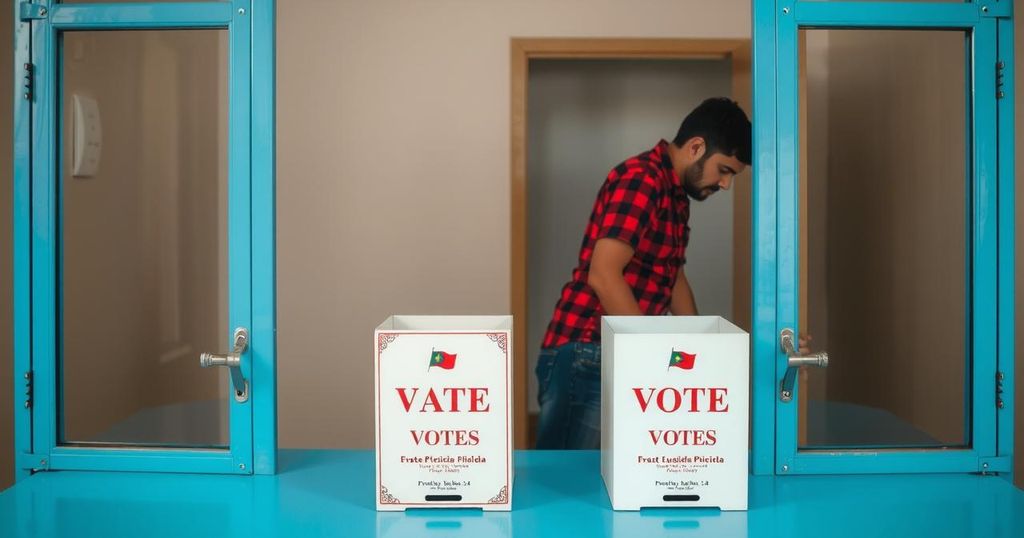World news
ANDRES MANUEL LOPEZ OBRADOR, ASIA, ASSOCIATED PRESS, BOLIVIA, CONSTITUTIONAL COURT, CORRUPTION, CUBA, DEMOCRACY, EL SALVADOR, ELECTIONS, EV, EVO MORALES, GOVERNANCE, LATIN AMERICA, LOPEZ OBRADOR, LUIS ARCE, MEXICO, NORTH AMERICA, PHILIPPINES, SOUTH AMERICA, THE ASSOCIATED PRESS
Fatima Khan
0 Comments
Bolivia’s Divisive Judicial Election Amid Political Strife
Bolivia is conducting a controversial judicial election amid political tension. Despite a ban on campaigning, candidates have resorted to covert promotional tactics. The unique practice of electing judges has been criticized for jeopardizing judicial independence and becoming politically charged. Following delays prompted by leadership struggles within the ruling party, only partial seats are contested this election, heightening voter apathy. The integrity and function of Bolivian democracy continue to face significant challenges.
In Bolivia, the recent popular vote for top judicial positions has sparked significant controversy amid constitutional delays and political tensions. Although campaigning is officially prohibited, candidates have found creative ways to promote themselves through everyday items such as snack packaging and official documents. Bolivia remains unique in allowing such elections for top judicial roles, an approach that has drawn widespread criticism for diminishing the judiciary’s independence. Critics assert that the election process has devolved into a politically charged environment that undermines the courts’ objectivity, turning them into political tools rather than impartial bodies of justice.
The context surrounding this election reveals deeper political struggles within Bolivia’s ruling parties. With the elections originally scheduled for late 2023, delays emerged due to interventions from the Constitutional Court, which is perceived to align with President Luis Arce’s faction over former President Evo Morales’ supporters. This delay has raised concerns over the integrity of the judicial system and its functionality. Notably, only four out of nine seats are contested, meaning the majority of judges will not be subject to new elections. This partial election is indicative of the ongoing rivalries that dominate Bolivian politics and the judiciary’s role within it.
Low voter turnout is anticipated based on previous elections where many citizens expressed anger and confusion over endorsing unfamiliar candidates with little transparency surrounding their selection. Historical examples illustrate the implications of this electoral system as regards the erosion of democratic norms. The judicial election unfolds at a time when Bolivian democracy is facing challenges, especially as past circumstances have revealed the judiciary’s vulnerabilities to political manipulation.
Bolivia is notable for being the only country that holds direct popular elections for its highest judicial officials. In 2009, former President Evo Morales initiated a significant overhaul of the judiciary, transforming the appointment process to a public electoral system. This shift aimed to enhance democratic engagement and combat corruption; however, it has experienced considerable backlash, with every subsequent election drawing criticism for political dominance and the erosion of judicial independence. In recent months, tensions within the ruling party have exacerbated conflicts surrounding the function and legitimacy of the judiciary, which many observers believe undermines the rule of law in Bolivia.
The judicial elections in Bolivia present a complex landscape rife with political intrigue and concerns over the integrity of the electoral process. As the long-standing conflicts between major political factions continue to play out, the effectiveness of the judicial system hangs in the balance. The forthcoming vote encapsulates the difficulties inherent in merging electoral democracy with a judiciary that many respondents believe should operate independently from political influences. The international community remains vigilant as these developments unfold, eyeing the implications for the future of democracy in Bolivia and potentially in neighboring countries facing similar dilemmas.
Original Source: www.voanews.com




Post Comment